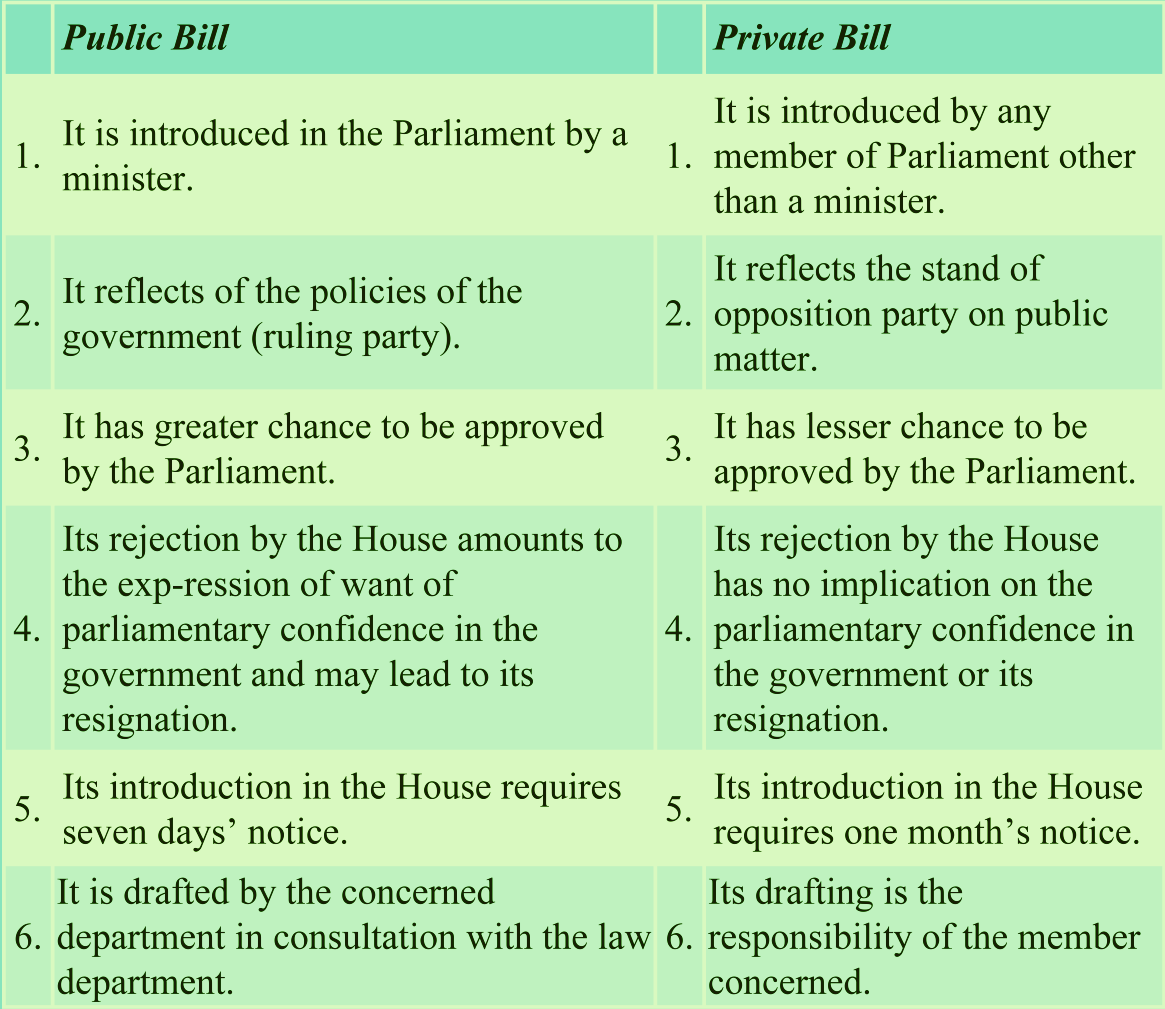Indian Polity
Private Members Bill
- 04 Dec 2021
- 4 min read
Why in News
Recently, Rajya Sabha reserved its decision to allow the introduction of a Private Member’s Bill to amend the Preamble to the Constitution.
- The Bill seeks to change the words in the Preamble “EQUALITY of status and of opportunity” to “EQUALITY of status and of opportunity to be born, to be fed, to be educated, to get a job and to be treated with dignity”.
Amendability of Preamble
- As a part of the Constitution, the preamble can be amended under Article 368 of the Constitution, but the basic structure of the preamble can not be amended.
- As per the Supreme Court verdict in the Kesavananda Bharati vs State of Kerala, 1973 , Parliament cannot change the basic structure of the Constitution.
- As of now, the preamble is only amended once through the 42nd Amendment Act, 1976.
- It added three new words–Socialist, Secular and Integrity.
Key Points
- About:
- Any Member of Parliament (MP) who is not a minister is referred to as a private member.
- Its drafting is the responsibility of the member concerned. Its introduction in the House requires one month’s notice.
- The government bills\public bills can be introduced and discussed on any day, private member’s bills can be introduced and discussed only on Fridays.
- In case of multiple Bills, a ballot system is used to decide the sequence of bills for introduction.
- The Parliamentary Committee on Private Member's Bills and Resolutions goes through all such Bills and classifies them based on their urgency and importance.
- Its rejection by the House has no implication on the parliamentary confidence in the government or its resignation.
- Upon conclusion of the discussion, the member piloting the bill can either withdraw it on the request of the minister concerned, or he may choose to press ahead with its passage.
- Previous Private Bills:
- The last time a private member’s bill was passed by both Houses was in 1970.
- It was the Supreme Court (Enlargement of Criminal Appellate Jurisdiction) Bill, 1968.
- 14 private member’s bills — five of which were introduced in Rajya Sabha — have become law so far. Some other private member bills that have become laws include-
- Proceedings of Legislature (Protection of Publication) Bill, 1956, in the Lok Sabha.
- The Salaries and Allowances of Members of Parliament (Amendment) Bill, 1964, introduced in the Lok Sabha.
- The Indian Penal Code (Amendment) Bill, 1967 introduced in the Rajya Sabha.
- The last time a private member’s bill was passed by both Houses was in 1970.
- Significance:
- The purpose of the private member’s bill is to draw the government’s attention to what individual MPs see as issues and gaps in the existing legal framework, which require legislative intervention.
- Thus it reflects the stand of the opposition party on public matters.
- The purpose of the private member’s bill is to draw the government’s attention to what individual MPs see as issues and gaps in the existing legal framework, which require legislative intervention.
Public Bill vs Private Bill






-min.jpg)